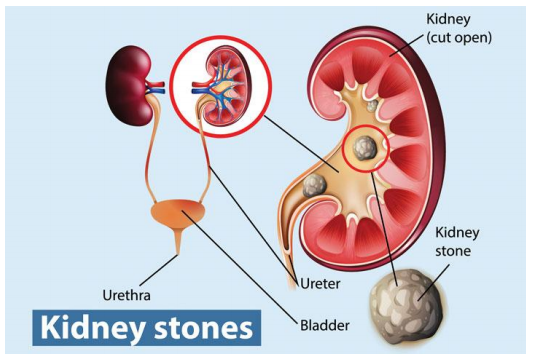Kidney Stones
Kidney Stones
Urinary calculi are solid particles like stones in the urinary system. They can develop anywhere along your urinary tract, which consists of these parts:
Kidneys
Ureter
Bladder
Urethra
Urinary calculi may remain within the Kidney or be passed into the ureter and bladder. During passage, calculi may irritate the ureter and may become lodged, obstructing urine flow and causing hydroureter and sometimes hydronephrosis which often requires endoscopic removal.
Symptoms are:
Large calculi remaining in the renal parenchyma or renal collecting system are often asymptomatic unless they cause obstruction and/or infection.
Severe pain, often accompanied by nausea and vomiting, usually occurs when calculi pass into the ureter and cause acute obstruction Sometimes one can pass blood in urine.
Seek immediate medical attention if you experience:
Pain so severe that you can’t sit still or find a comfortable position
Pain accompanied by nausea and vomiting
Pain accompanied by fever and chills
Blood in your urine
Difficulty passing urine.
Treatment of kidney stones:
A procedure called percutaneous nephrolithotomy involves surgically removing a kidney stone using small telescopes and instruments inserted through a small incision in your back. You will receive general anesthesia during the surgery and be in the hospital for one to two days while you recover.

